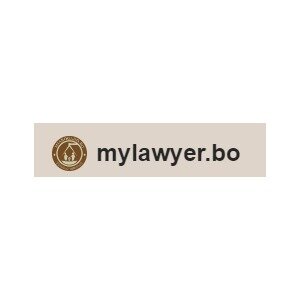Best Juvenile Law Lawyers in Sucre
Share your needs with us, get contacted by law firms.
Free. Takes 2 min.
List of the best lawyers in Sucre, Bolivia
About Juvenile Law in Sucre, Bolivia
Juvenile Law in Sucre, Bolivia, is designed to address legal issues concerning minors and young people under the age of majority. This branch of law focuses on the protection, care, and rehabilitation of juveniles rather than punishment. The Bolivian legal system recognizes the need for a separate framework for dealing with minors to promote their well-being and development. Juvenile Law covers various aspects such as family disputes, custody issues, juvenile delinquency, and child welfare.
Why You May Need a Lawyer
There are several situations where individuals may require legal assistance in the realm of Juvenile Law. Some common cases include:
- Custody and guardianship disputes.
- Cases of juvenile delinquency or involvement in criminal activities.
- Issues related to child protection and welfare, including abuse or neglect.
- Adoption proceedings and parental rights matters.
- Legal representation for minors involved in legal proceedings.
- Disputes arising from divorce or separation affecting children.
- Intervention in truancy or educational neglect cases.
A lawyer specializing in Juvenile Law can provide the necessary guidance and representation to protect the rights and well-being of minors.
Local Laws Overview
Sucre, as the constitutional capital of Bolivia, follows national legislation regarding Juvenile Law, which is primarily governed by the Code of the Child and Adolescent (Código Niña, Niño y Adolescente). Key aspects include:
- Age of Majority: In Bolivia, the age of majority is 18. Individuals under this age are considered minors and subject to Juvenile Law.
- Juvenile Justice System: Focuses on rehabilitation over punishment, with particular courts for juvenile cases.
- Parental Responsibility: Covers legal obligations for parents regarding care, upbringing, and education of their children.
- Child Protection Services: Mechanisms for safeguarding children from abuse, neglect, and exploitation.
- Adoption Regulations: Includes criteria and processes for the legal adoption of minors.
Frequently Asked Questions
What is the age of majority in Bolivia?
The age of majority in Bolivia is 18 years. Individuals younger than this are considered minors.
How does the juvenile justice system operate?
The juvenile justice system in Bolivia focuses on rehabilitating minors rather than punishing them. Special courts are designated for juvenile cases.
Can a minor be tried as an adult in Bolivia?
Generally, minors are not tried as adults. However, in severe cases involving older juveniles, exceptions may apply subject to judicial discretion.
What are the rights of minors in Bolivia?
Minors have rights to protection, education, healthcare, identity, and participation as outlined in the Code of the Child and Adolescent.
How can I obtain custody of a child?
Custody arrangements generally consider the best interests of the child. Legal procedures often involve proving capacity and intent to provide a stable environment.
What legal steps are involved in adoption?
Adoption involves multiple steps including home assessments, matching with available children, and fulfilling legal requirements set by the authorities.
How are cases of abuse or neglect addressed?
Child Protection Services intervene in reports of abuse or neglect. Legal actions can be initiated to secure the child's safety and welfare.
What happens if a minor commits a crime?
A minor accused of a crime will be processed within the juvenile justice system, which focuses on rehabilitation and reintegration.
Are there laws regarding child labor?
Bolivia has laws restricting child labor. Minors under 14 are prohibited from working, and specific regulations apply to older minors.
What support is available for juvenile offenders?
Support includes access to counseling, education programs, and rehabilitation services aiming to guide juveniles toward positive paths.
Additional Resources
For further assistance, consider reaching out to the following resources:
- Comité Municipal de la Niñez y Adolescencia: A local body in Sucre for child welfare and rights.
- Defensoría del Pueblo: Offers legal guidance and advocates for the rights of young people.
- Police Juvenile Units: These units specially address juvenile-related issues.
- UNICEF Bolivia: Provides support and resources for child protection and rights.
Next Steps
If you need legal assistance in Juvenile Law, consider taking the following steps:
- Consult a lawyer specializing in Juvenile Law for personalized legal advice.
- Contact local authorities or legal aid organizations for guidance and support.
- Gather relevant documentation to support your case, including evidence or records related to the juvenile's situation.
- Consider mediation or counseling services if family conflicts are involved, to seek resolution without legal proceedings.
- Stay informed of your rights and responsibilities under local Juvenile Law to effectively advocate for the child's best interests.
Lawzana helps you find the best lawyers and law firms in Sucre through a curated and pre-screened list of qualified legal professionals. Our platform offers rankings and detailed profiles of attorneys and law firms, allowing you to compare based on practice areas, including Juvenile Law, experience, and client feedback.
Each profile includes a description of the firm's areas of practice, client reviews, team members and partners, year of establishment, spoken languages, office locations, contact information, social media presence, and any published articles or resources. Most firms on our platform speak English and are experienced in both local and international legal matters.
Get a quote from top-rated law firms in Sucre, Bolivia — quickly, securely, and without unnecessary hassle.
Disclaimer:
The information provided on this page is for general informational purposes only and does not constitute legal advice. While we strive to ensure the accuracy and relevance of the content, legal information may change over time, and interpretations of the law can vary. You should always consult with a qualified legal professional for advice specific to your situation.
We disclaim all liability for actions taken or not taken based on the content of this page. If you believe any information is incorrect or outdated, please contact us, and we will review and update it where appropriate.








